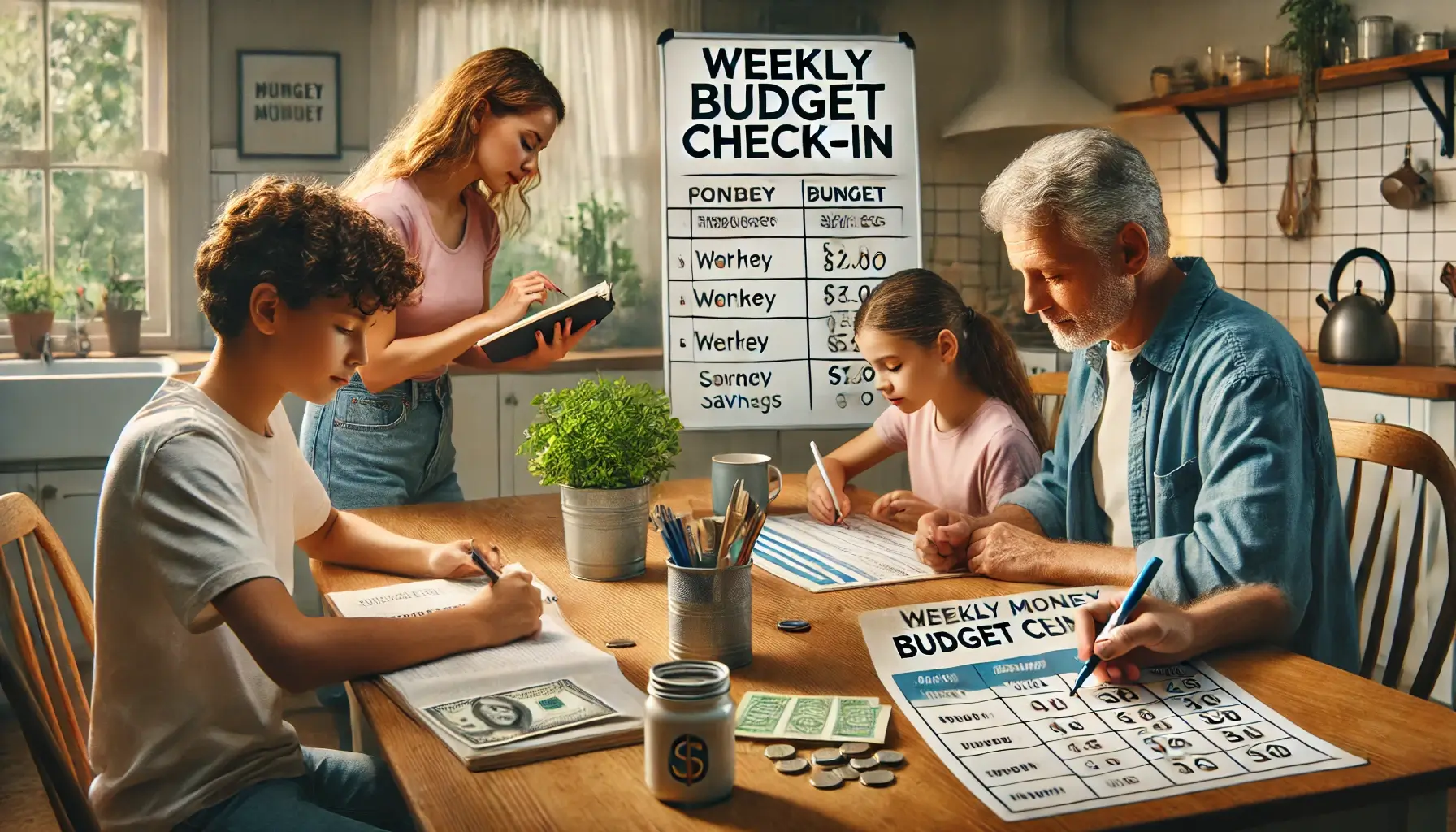Creating a budget is a great first step — but it’s what you do after that really counts.
Most budgets fail not because they’re badly made, but because they’re ignored. That’s where weekly check-ins come in. They’re quick, simple meetings that keep your finances on track, your goals in sight, and your family in sync.
Here’s how a 15-minute check-in, once a week, can transform your entire financial life.
1. What Is a Weekly Budget Check-In?
A weekly check-in is a short, intentional review of your budget, spending, and priorities.
It usually includes:
- Reviewing your current balance(s)
- Checking recent transactions
- Updating budget categories
- Adjusting plans for the coming week
- Talking through any upcoming expenses
It’s like brushing your teeth — small, consistent action that prevents bigger problems.
2. Why Weekly Check-Ins Work Better Than Monthly Reviews
Monthly reviews are reactive. Weekly reviews are proactive.
Benefits of weekly check-ins:
- Catch overspending early
- Fix problems before they snowball
- Feel more in control day-to-day
- Reduce last-minute stress
- Keep financial goals top of mind
Shorter cycles = fewer surprises.
3. Keep It Short and Focused
This doesn’t need to take an hour — or even 30 minutes.
15–20 minutes is enough when you stick to a system.
Use a simple checklist like:
- What did we spend this week?
- Are we on track with our categories?
- Any new expenses coming up?
- Any extra income or adjustments?
- What’s one small win to celebrate?
Quick, consistent, and clear.
4. Use a Shared Tool or Dashboard
Visibility is key to staying on the same page.
Try:
- A budget app (You Need a Budget, Goodbudget, EveryDollar)
- A shared Google Sheet
- A whiteboard or fridge tracker
- A notebook or budget binder
Choose one tool and stick with it.
5. Set a Recurring Time — and Make It a Habit
Routine creates results.
Try:
- Sunday evenings after dinner
- Monday mornings with coffee
- Friday night financial “date”
- Before grocery shopping each week
Set a calendar reminder. Over time, it becomes automatic.
6. Celebrate Small Wins (Seriously)
Acknowledging progress boosts morale and momentum.
Celebrate when you:
- Stayed under budget in one category
- Avoided impulse spending
- Saved even a small amount
- Talked calmly about money together
Every win builds financial confidence.
7. Involve the Whole Family (Age-Appropriately)
Make it a family practice, not just a couple’s task.
Include kids by:
- Letting them track their own savings
- Asking for input on priorities (e.g., fun spending)
- Giving them a voice in goals (e.g., family trip)
This builds money skills and connection.
8. Adjust Your Plan Without Guilt
Life changes fast. Weekly check-ins let you pivot quickly.
- Overspent on groceries? Reduce dining out.
- Unexpected expense? Delay a non-essential purchase.
- Extra income? Allocate to a goal.
Adaptability is a superpower.
9. Keep the Mood Light and Solution-Focused
Money talks don’t need to be heavy or tense.
Set the tone with:
- A calm space and time
- Music, snacks, or coffee
- Humor and grace
- A shared “we’re in this together” mindset
Keep it supportive, not stressful.
10. Track Your Progress Over Time
Use a simple summary to see how far you’ve come.
Track:
- Total saved
- Debt paid off
- Weekly streaks of staying on track
- Goal milestones
Looking back fuels you to keep moving forward.
Final Thoughts: Weekly Check-Ins, Long-Term Wins
It’s easy to lose momentum with money — but checking in weekly helps you stay grounded, clear, and aligned.
You don’t need perfection. Just presence.
So pick a time, commit to it, and watch your budget turn into one of your family’s greatest tools for peace, progress, and partnership.

